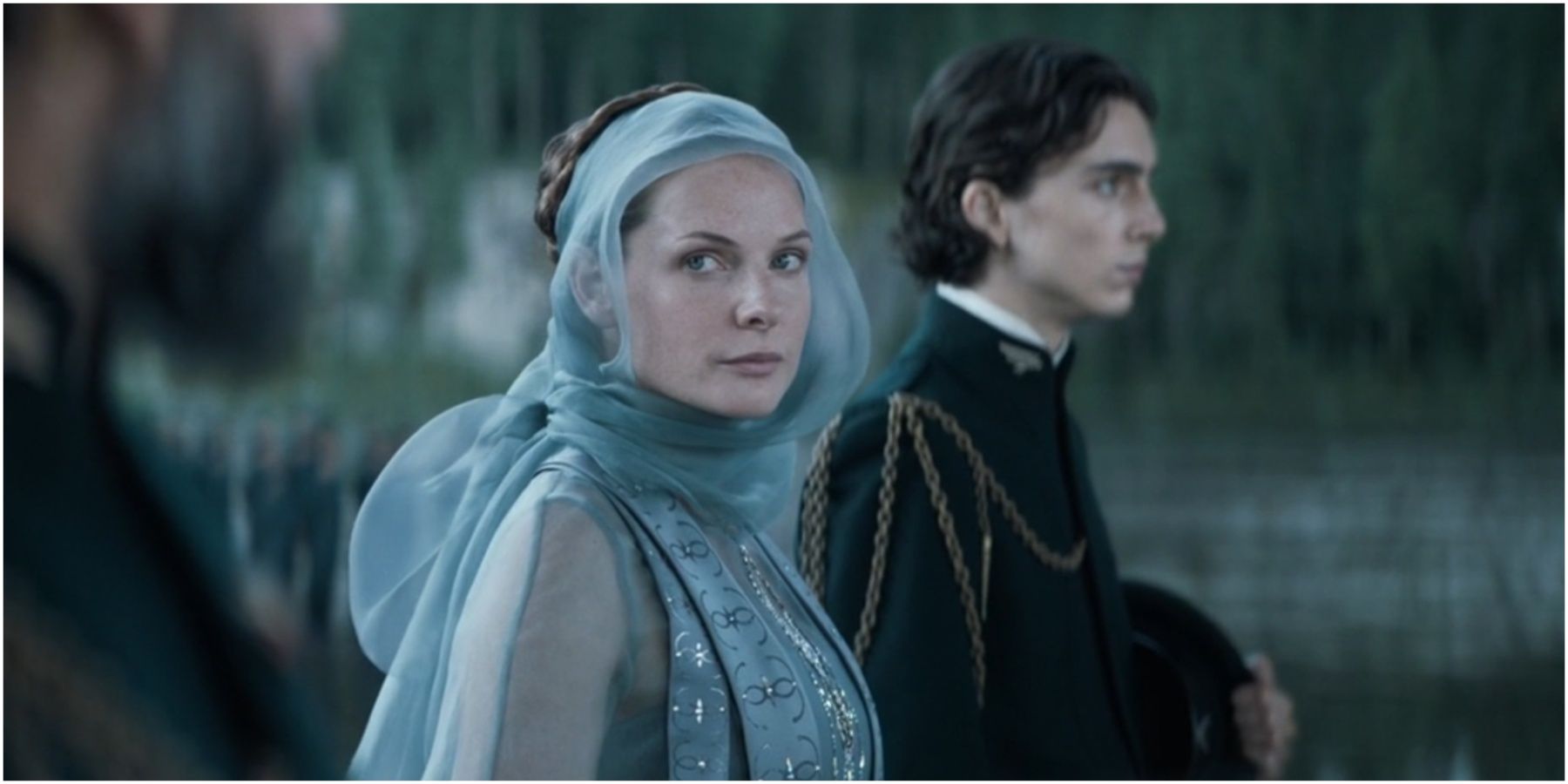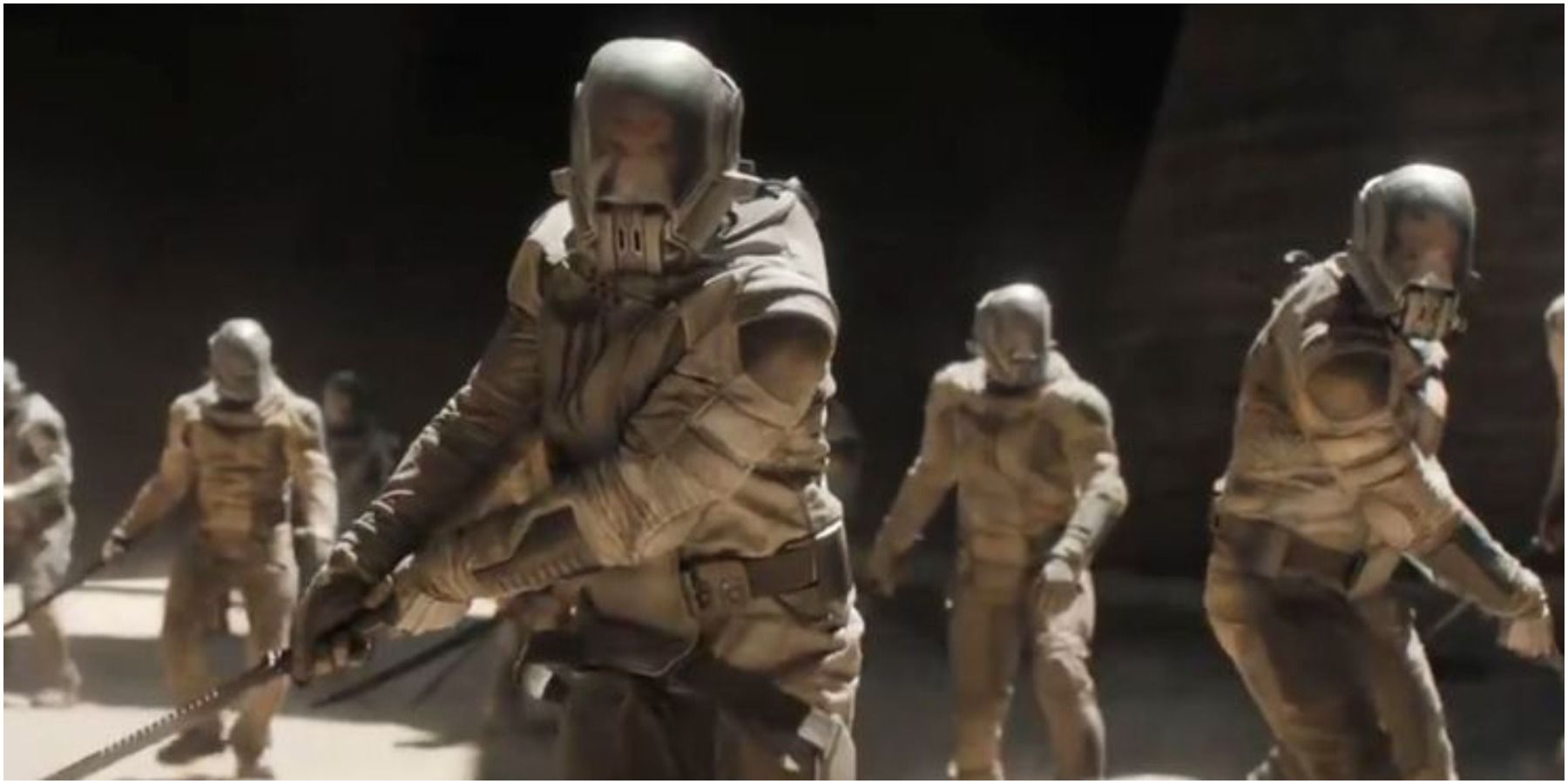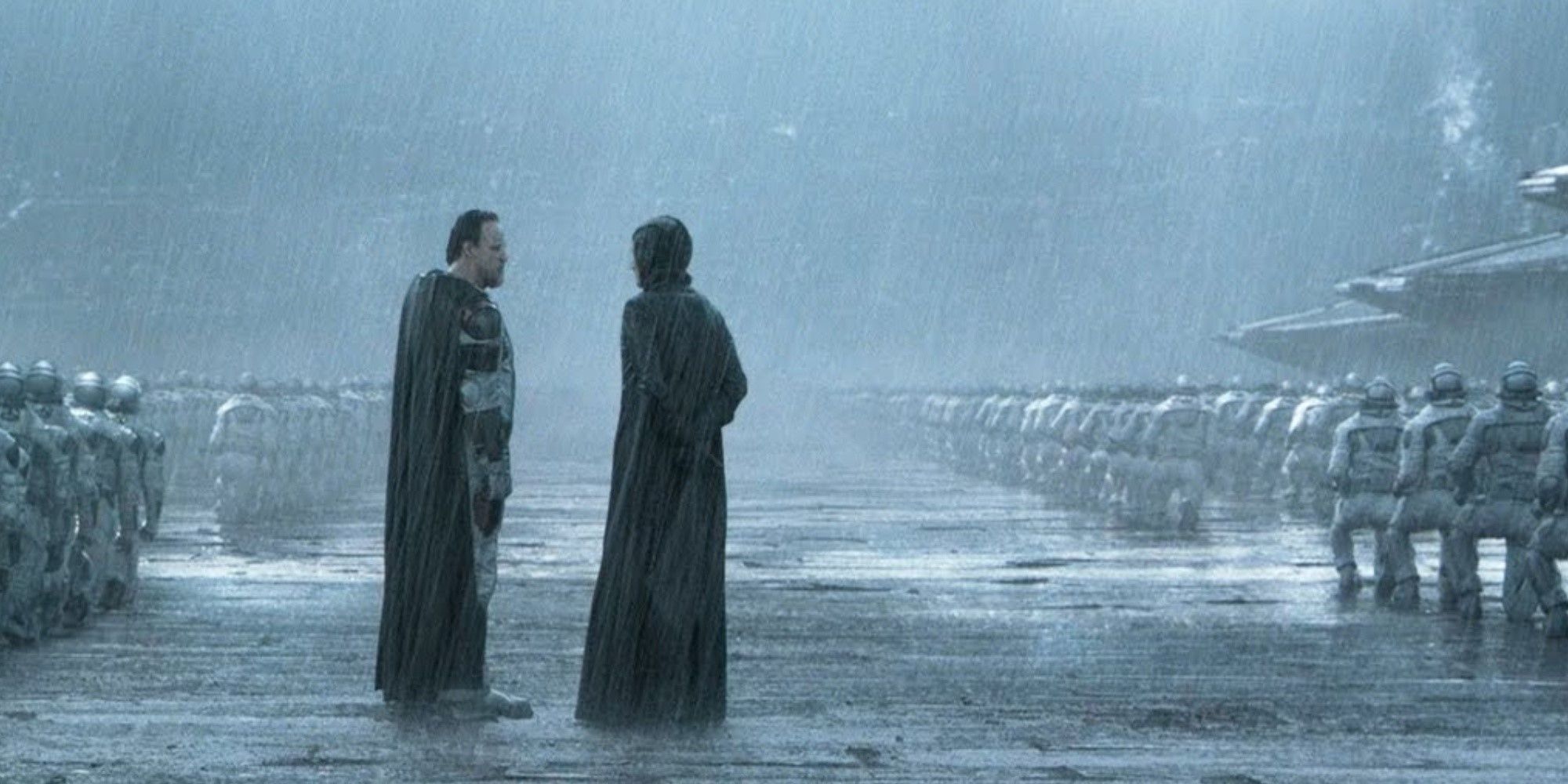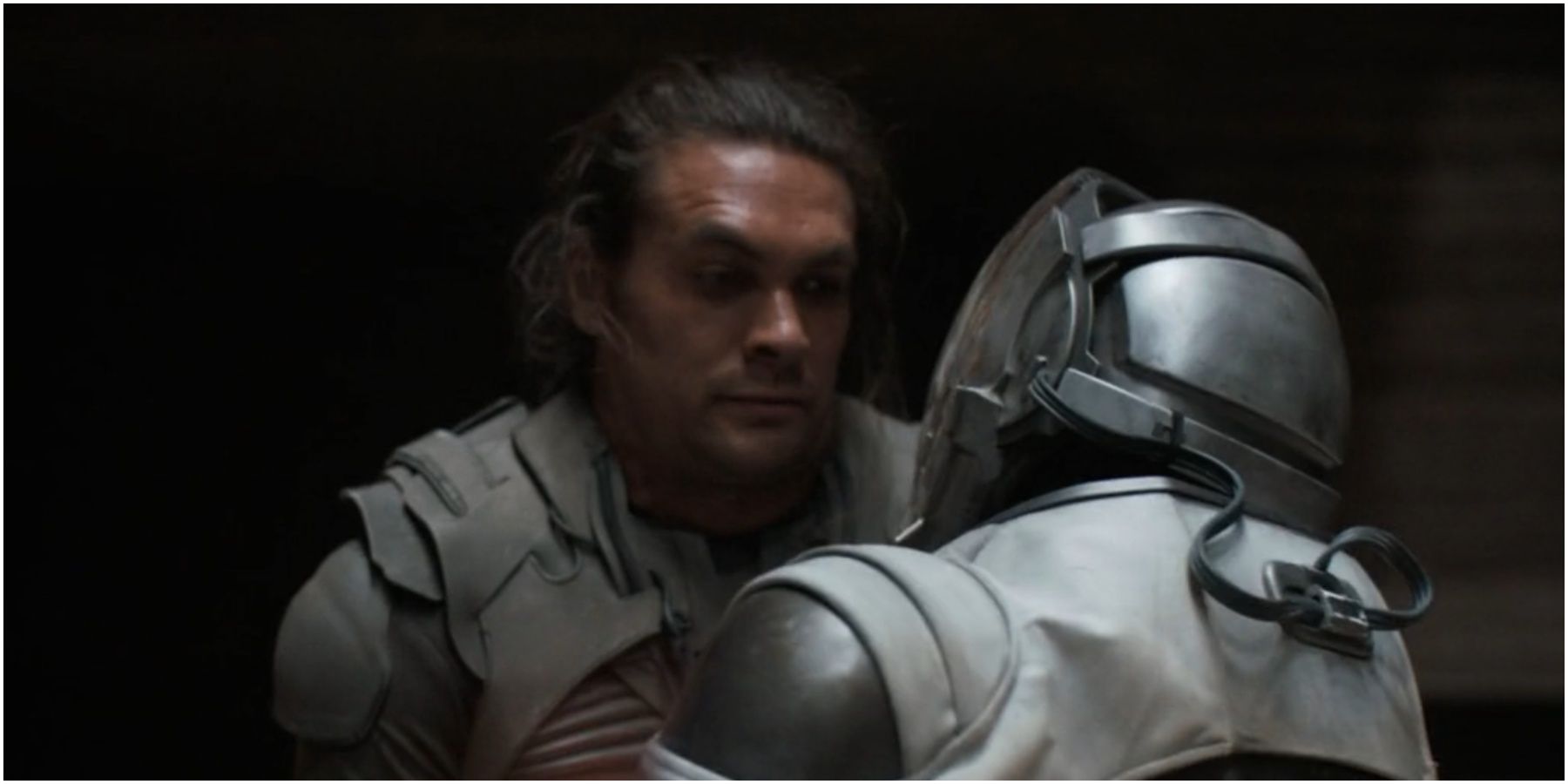Quick Links
- Herbert’s Dune: Leto And Paul On the Imperial Corps of Sardaukar
In his 2021 film adaptation, Denis Villeneuve adapts the Sardaukar military force from Frank Herbert’s Dune, and does a good job of depicting their creed and values. Arguably the toughest and the most professional military in the Dune universe, the Sardaukar are a force to be reckoned with. Herbert’s Dune draws parallels between the Fremen and the Sardaukar forces and asserts early on that the former can rival the latter if equipped properly.
While Duke Leto Atreides I considers harnessing the potential of the Fremen against the Sardaukar and believes the Spice wealth on Arrakis can fund his ambition, he simply doesn’t have the time. He and his household walk into the trap on Arrakis, and the Sardaukar aid the Harkonnens in their coup. The Sardaukar forces are also the end of the Ginaz Swordmaster, and the lethal warrior Duncan Idaho. Here is what makes them formidable in the Dune universe.
Dune: Why Did The Emperor Send House Atreides To Arrakis?
The Atreides’ departure to Arrakis marks the beginning of action in Dune, but what is the truth behind the Emperor’s decision?
Who Are The Sardaukar?
Villeneuve’s Dune provides a glimpse of the Sardaukar on the Imperial Army Planet, Salusa Secundus. It gets the basics right: they are bloodthirsty, angry troops without an ounce of humanity in their gaze. They are assembled in rows on a large military base, undeterred by the harsh environmental conditions. Thousands of armored troops kneel on a stony tarmac, and vicars carry out a bizarre blood ceremony. They hold bowls of blood and daub the troops’ foreheads, one by one. This blood is collected from the sacrificed men who hang upside down nearby. The combination of gusty winds, rainfall, and the blood ritual creates a chilling visual representation of the Sardaukar.
The rationale here is simple. The Sardaukar, the Padishah Emperor’s elite forces, are subject to environmental stresses to instill in them military discipline and prepare them for the rigors of combat. The troops’ raison d’être, or reason for being, is plain: they exist to serve the Emperor. A Bashar (officer of the Sardaukar) who interacts with Baron Vladimir Harkonnen’s henchman, Piter de Vries, during the inspection, describes the military force in Villeneuve’s Dune as:
We are the Sardaukar. The Emperor’s blades. Those who stand against us fall.
Bashar adds about the impending military coup in an indirect, unpleasant manner:
The Emperor commands it. It is done.
With that, the troops all rise at once and thrust their swords into the air.
Despite having the numbers, the Baron needs three battalions to carry out a military takeover of Arrakis. The Atreides legions, as Piter de Vries mentions, are “the finest in the Imperium” and trained under the command of Gurney Halleck and Duncan Idaho. The Sardaukar are the only ones superior to them and their degree of proficiency.
Herbert’s Dune: Leto And Paul On the Imperial Corps of Sardaukar
In Herbert’s magnum opus, Dune, Duke Leto says the Sardaukar are bred to kill, and trained to engage in assaults or some such. Their name comes up when the father and son get to talking about the Harkonnens stockpiling Melange. Duke Leto describes them as “…soldier fanatics nonetheless.”
Along with their mystical fanaticism, Herbert talks about the important characteristics of the Sardaukar corps. The tough environmental conditions of Salusa Secundus are imposed on the training cadres, and they develop the esprit of shared suffering through this training. Duke Leto believes that the Sardaukar aren’t strictly inimitable and that the brutal, unforgiving conditions on Arrakis could birth a rival military force. They have the human resource, the Fremen, which they can harness by appeasement and negotiation:
We have there the potential of a corps as strong and deadly as the Sardaukar. It’ll require patience to exploit them secretly and wealth to equip them properly. […] You see now why we walk into Arrakis, knowing the trap is there.
The Emperor’s Loyalists
Duke Leto hardly has the time to execute his vision, and his reign on Arrakis lasts only a few months. As seen in Dune, the Sardaukar fight alongside the Harkonnens to massacre the Atreides in the Siege of Arrakeen. How the Sardaukar troops conduct themselves in the night attack scene draws a sharp contrast with the Atreides troops. The Emperor’s elite soldiers lack the gallantry and the passion seen in the Atreides, specifically in the Troubadour-Warrior, Gurney Halleck. The Sardaukar are bred to kill. They lack empathy and compassion, their training overpowering their human and moral sensibilities.
In the aftermath of the Arrakeen massacre, Paul and Lady Jessica find themselves in the company of Duncan Idaho, Doctor Kynes, in an Imperial Ecological Testing Station. Paul remarks in Herbert’s Dune:
The Sardaukar on Arrakis are a measure of how much our beloved Emperor feared my father.
As for Duncan’s end, he clashes with the Sardaukar at the lab and kills a few at first. A Sardaukar drives his sword through his chest and he falls. As the Sardaukar use a laser cutter to cut through the door to get to Paul and Jessica, Duncan stands up and raises his longsword one last time. In the end, he dispatches nineteen of the Emperor’s Sardaukar, proving his gallantry and sword mastery in Dune.

Dune
Based on the novel by Frank Herbert, Dune follows the story of Paul Atreides played by Timothée Chalamet, whose family take control of a planet that holds the key to faster than light travel, and certain mental powers. This futuristic fantasy world is rife with politics, religion, wars and betrayals, as empires and factions fight for control over the planet.

Dune: Why Was Jessica Told To Bear Only Daughters To The Atreides?
In the backstory of Dune, Jessica was instructed by the Bene Gesserit to bear only daughters to the Atreides. The question remains of why.


